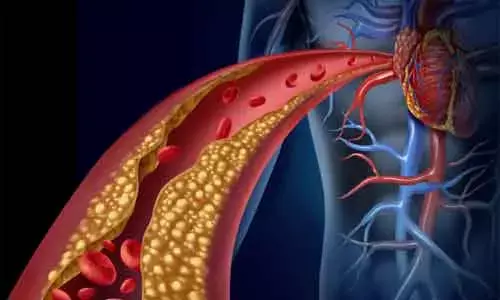- Home
- Medical news & Guidelines
- Anesthesiology
- Cardiology and CTVS
- Critical Care
- Dentistry
- Dermatology
- Diabetes and Endocrinology
- ENT
- Gastroenterology
- Medicine
- Nephrology
- Neurology
- Obstretics-Gynaecology
- Oncology
- Ophthalmology
- Orthopaedics
- Pediatrics-Neonatology
- Psychiatry
- Pulmonology
- Radiology
- Surgery
- Urology
- Laboratory Medicine
- Diet
- Nursing
- Paramedical
- Physiotherapy
- Health news
- Fact Check
- Bone Health Fact Check
- Brain Health Fact Check
- Cancer Related Fact Check
- Child Care Fact Check
- Dental and oral health fact check
- Diabetes and metabolic health fact check
- Diet and Nutrition Fact Check
- Eye and ENT Care Fact Check
- Fitness fact check
- Gut health fact check
- Heart health fact check
- Kidney health fact check
- Medical education fact check
- Men's health fact check
- Respiratory fact check
- Skin and hair care fact check
- Vaccine and Immunization fact check
- Women's health fact check
- AYUSH
- State News
- Andaman and Nicobar Islands
- Andhra Pradesh
- Arunachal Pradesh
- Assam
- Bihar
- Chandigarh
- Chattisgarh
- Dadra and Nagar Haveli
- Daman and Diu
- Delhi
- Goa
- Gujarat
- Haryana
- Himachal Pradesh
- Jammu & Kashmir
- Jharkhand
- Karnataka
- Kerala
- Ladakh
- Lakshadweep
- Madhya Pradesh
- Maharashtra
- Manipur
- Meghalaya
- Mizoram
- Nagaland
- Odisha
- Puducherry
- Punjab
- Rajasthan
- Sikkim
- Tamil Nadu
- Telangana
- Tripura
- Uttar Pradesh
- Uttrakhand
- West Bengal
- Medical Education
- Industry
Evolocumab effectively lowers LDL-C in familial hypercholesterolemia patients: JACC

Delhi: Evolocumab (Repatha) is safe and effective for the treatment of familial hypercholesterolemia (FH), a recent study in the Journal of the American College of Cardiology (JACC) has suggested.
According to the study, over a median follow-up of 4.1 years, evolocumab reduced plasma LDL-C (low-density lipoprotein-cholesterol) levels in patients with HoFH (homozygous FH) and severe HeFH (heterozygous FH) and was well-tolerated and effective.
Familial hypercholesterolemia is an autosomal dominant genetic disease characterized by severely elevated low-density lipoprotein (LDL) cholesterol levels and premature cardiovascular disease. Genetic causes of FH include loss-of-function mutations in the low-density lipoprotein receptor (LDLR); loss of function in the apolipoprotein B gene; gain-of-function in proprotein convertase subtilisin/kexin type 9 (PCSK9); and, rarely, loss of function in both alleles of the LDLR adaptor protein gene, which leads to autosomal recessive hypercholesterolemia.
Evolocumab is a monoclonal antibody that lowers plasma LDL-C levels by binding PCSK9, thereby preventing the degradation of the LDLR and increasing LDLR expression on the cell surface. It is currently approved as an adjunct to diet and maximally tolerated statin therapy in patients with HoFH and those with HeFH.
The Trial Assessing Long Term Use of PCSK9 Inhibitor in Subjects with Genetic LDL Disorders (TAUSSIG), designed by Raul D. Santos, University of São Paulo Medical School Hospital and Hospital Israelita Albert Einstein, São Paulo, Brazil, and colleagues aimed to provide long-term safety and efficacy data for evolocumab in patients with homozygous FH and severe heterozygous FH.
In this study, patients with HoFH or severe HeFH ≥12 years of age and on stable lipid-lowering therapy began subcutaneous evolocumab 420 mg monthly or 420 mg every 2 weeks if on lipoprotein apheresis. After 12 weeks, those not on apheresis could be up-titrated to 420 mg every 2 weeks. In total, 300 patients (106 with HoFH, including 14 <18 years of age at enrollment) received evolocumab for a median of 4.1 years.
The primary endpoint was the incidence of treatment-emergent adverse events; secondary endpoints were changes in LDL-C and other lipids.
Key findings of the study include:
- Adverse events occurred in 89.3% of patients, the most common of which were nasopharyngitis, influenza, upper respiratory tract infection, and headache.
- Mean change in LDL-C from baseline to week 12 was −21.2% (−59.8 mg/dl) in patients with HoFH and −54.9% (−104.4 mg/dl) in those with severe HeFH and was sustained over time.
- Of 48 patients with HoFH who were up-titrated, mean change in LDL-C improved from −19.6% at week 12 to −29.7% after 12 weeks of 420 mg every 2 weeks.
- The adjudicated cardiovascular event rate was 2.7% per year. Of 61 patients receiving apheresis at enrollment, 16 discontinued apheresis.
"We showed in a long-term, open-label study that evolocumab has sustained efficacy, safety, and tolerability in patients with HoFH and severe HeFH," concluded the authors.
The study, "Long-Term Evolocumab in Patients With Familial Hypercholesterolemia," is published in the Journal of the American College of Cardiology.
Dr Kamal Kant Kohli-MBBS, DTCD- a chest specialist with more than 30 years of practice and a flair for writing clinical articles, Dr Kamal Kant Kohli joined Medical Dialogues as a Chief Editor of Medical News. Besides writing articles, as an editor, he proofreads and verifies all the medical content published on Medical Dialogues including those coming from journals, studies,medical conferences,guidelines etc. Email: drkohli@medicaldialogues.in. Contact no. 011-43720751


